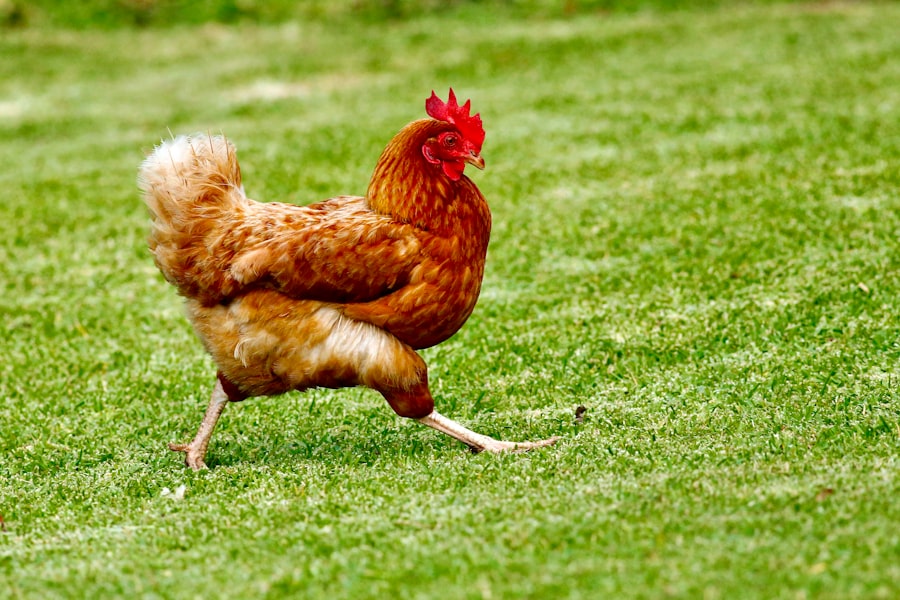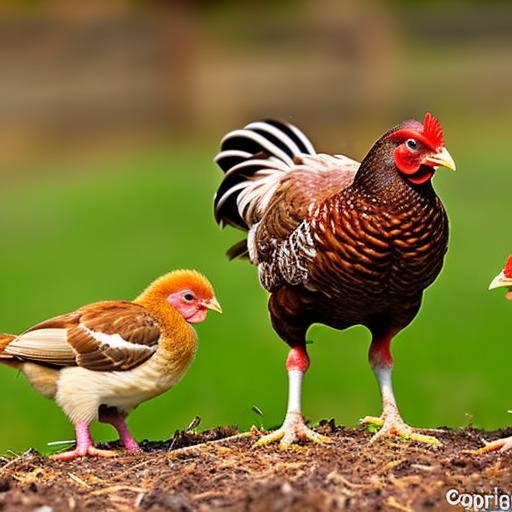Keeping chickens and turkeys together can be a rewarding and enjoyable experience for poultry enthusiasts. Not only can it save space and resources, but it can also provide a unique dynamic to your flock. In this article, we will explore the benefits and potential risks of keeping chickens and turkeys together, as well as provide tips on how to create a harmonious environment for both species.
Key Takeaways
- Chickens and turkeys have different behaviors and needs, but can be kept together with proper care and management.
- Keeping chickens and turkeys together can provide benefits such as pest control and social interaction.
- However, there are potential risks such as disease transmission and aggression between the two species.
- Choosing the right coop and providing enough space is crucial for the health and well-being of both chickens and turkeys.
- Maintaining good hygiene, providing proper nutrition, and monitoring for signs of illness can help ensure harmony between chickens and turkeys in a coop.
Understanding the Nature of Chickens and Turkeys
Chickens and turkeys have different natural behaviors and characteristics that should be taken into consideration when keeping them together. Chickens are social animals that establish a pecking order within their flock. They communicate through various vocalizations and body language, such as clucking, crowing, and flapping their wings. Turkeys, on the other hand, are more independent and tend to form smaller groups. They communicate through vocalizations, including gobbling, purring, and hissing.
Advantages of Keeping Chickens and Turkeys Together
One of the main advantages of keeping chickens and turkeys together is reduced feed costs. Both species have similar dietary needs and can eat the same types of feed. By combining their feeding requirements, you can save money on purchasing separate feeds for each species. Additionally, turkeys are excellent foragers and can help control pests in your yard or garden. They will eat insects, slugs, and other small creatures that may harm your plants or crops.
Potential Risks of Keeping Chickens and Turkeys Together
While there are many benefits to keeping chickens and turkeys together, there are also potential risks that should be considered. One of the main risks is disease transmission. Chickens and turkeys can carry different diseases that may not affect them but can be harmful to the other species. It is important to practice good biosecurity measures, such as regular cleaning and disinfection of the coop, to minimize the risk of disease transmission. Another potential risk is aggression between the two species. Chickens can be territorial and may peck or bully turkeys, especially if they feel threatened or if there is limited space in the coop.
Choosing the Right Chicken Coop for Chickens and Turkeys
When keeping chickens and turkeys together, it is important to choose a coop that is suitable for both species. The coop should be spacious enough to accommodate the number of birds you plan to keep and should provide adequate ventilation to prevent the buildup of moisture and ammonia. It should also have separate areas for nesting and roosting, as chickens and turkeys have different preferences when it comes to these activities.
Space Requirements for Chickens and Turkeys in a Coop

Chickens and turkeys require different amounts of space in a coop. As a general guideline, chickens need at least 4 square feet of floor space per bird, while turkeys need at least 10 square feet per bird. It is important to provide enough space for both species to move around comfortably and engage in their natural behaviors. If space is limited, consider providing additional outdoor space or allowing the birds to free-range during the day.
Feeding Chickens and Turkeys in the Same Coop
Feeding chickens and turkeys together can be relatively easy, as both species have similar dietary needs. They can eat the same types of feed, such as a balanced poultry feed or a mix of grains and pellets. However, it is important to monitor their feeding habits to ensure that each bird is getting enough food. Chickens are known to be more aggressive eaters and may dominate the feeding area, leaving the turkeys with less access to food. Consider providing multiple feeding stations or using feeders that are specifically designed to prevent bullying.
Health and Hygiene Considerations for Chickens and Turkeys in a Coop
Maintaining good hygiene in a coop that houses both chickens and turkeys is crucial for preventing disease transmission. Regularly clean and disinfect the coop, paying special attention to areas where droppings accumulate. Provide clean bedding and nesting material to prevent the buildup of bacteria and parasites. It is also important to monitor the health of your birds regularly and seek veterinary care if you notice any signs of illness.
Tips for Keeping Chickens and Turkeys Together in Harmony
To ensure that chickens and turkeys coexist peacefully in the same coop, there are a few tips you can follow. Provide plenty of perches and roosting space, as both species enjoy being off the ground. This will also help reduce aggression and bullying. Additionally, provide enough nesting boxes for both species, as they have different preferences when it comes to laying eggs. Finally, observe the behavior of your birds regularly and intervene if you notice any signs of aggression or stress.
Is Keeping Chickens and Turkeys Together Right for You?
Keeping chickens and turkeys together can be a rewarding experience if done properly. By understanding the natural behaviors and characteristics of both species, providing a suitable coop and feeding arrangement, practicing good hygiene, and promoting harmony among the birds, you can create a successful mixed flock. However, it is important to consider the potential risks and challenges associated with keeping chickens and turkeys together before making a decision. Evaluate your own situation, resources, and goals to determine if keeping chickens and turkeys together is the right choice for you.
If you’re wondering whether you can keep chickens and turkeys together, you’ll find some valuable insights in this article on Poultry Wizard. They provide expert advice on various aspects of poultry keeping, including tips on creating a suitable chicken coop in Grand Island, NE (source). Additionally, they offer creative ideas for designing the interior of your chicken coop (source). For those interested in breeding ducks, Poultry Wizard also offers information on duck mating season and when it occurs (source). Whether you’re a beginner or an experienced poultry keeper, these articles will provide you with valuable knowledge to ensure the well-being of your feathered friends.
FAQs
Can I keep chickens and turkeys together?
Yes, it is possible to keep chickens and turkeys together in the same coop or pen.
What are the benefits of keeping chickens and turkeys together?
Keeping chickens and turkeys together can provide a variety of benefits, including increased socialization, reduced stress, and improved overall health.
What are the potential drawbacks of keeping chickens and turkeys together?
One potential drawback of keeping chickens and turkeys together is the risk of disease transmission. Additionally, turkeys may be more aggressive than chickens and could potentially harm them.
What should I consider before keeping chickens and turkeys together?
Before keeping chickens and turkeys together, it is important to consider the size of your coop or pen, the number of birds you plan to keep, and the temperament of your birds. You should also research the specific needs and requirements of both chickens and turkeys to ensure that they are compatible.
How can I ensure that my chickens and turkeys get along?
To ensure that your chickens and turkeys get along, it is important to provide plenty of space, food, and water for all of your birds. You should also monitor their behavior closely and separate any birds that show signs of aggression or illness.
Meet Walter, the feathered-friend fanatic of Florida! Nestled in the sunshine state, Walter struts through life with his feathered companions, clucking his way to happiness. With a coop that’s fancier than a five-star hotel, he’s the Don Juan of the chicken world. When he’s not teaching his hens to do the cha-cha, you’ll find him in a heated debate with his prized rooster, Sir Clucks-a-Lot. Walter’s poultry passion is no yolk; he’s the sunny-side-up guy you never knew you needed in your flock of friends!







